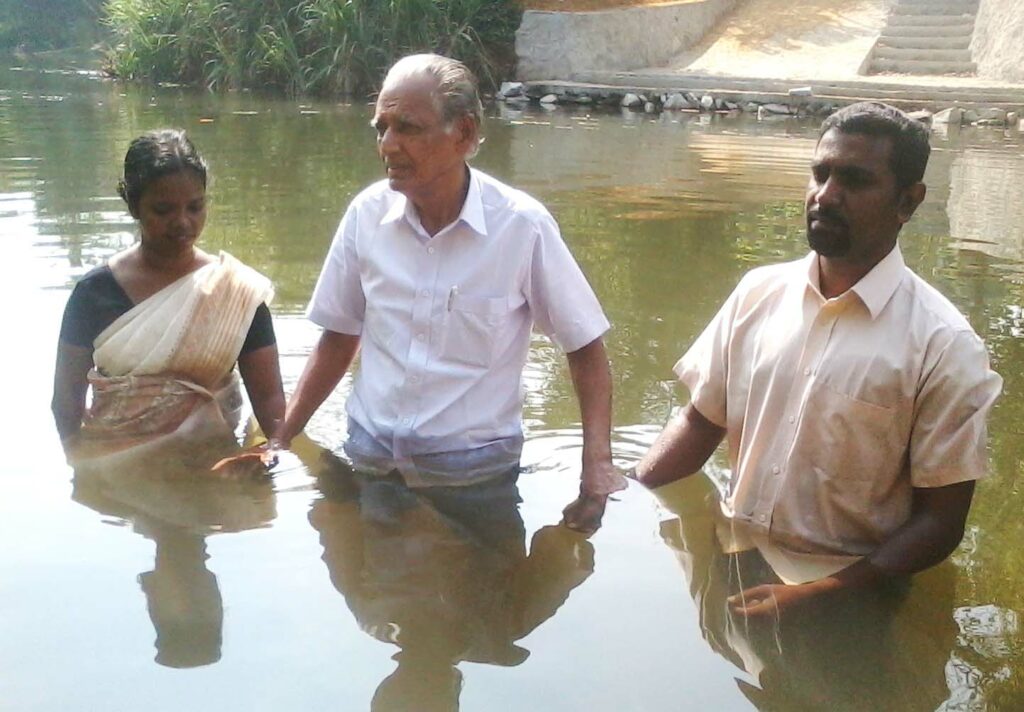The Samaritan woman who met Jesus by the well was greatly impressed that he “told me all that ever I did” (John 4:29). Very often it is clear that Jesus could see into the heart of man and so often he pitched his message to take account of what he knew of his listeners. None of us has such powers of perception, but in order to reach out to people effectively, we need to understand them as well as we can, and to take account of their background and circumstances. A good teacher uses information about his pupils to create an appropriate and effective learning experience.
In the mission field, we need to be systematic in building up a picture of contacts, since we are often living hundreds of miles away and only have opportunity to visit them from time to time. Most CBM areas are served by teams – and the personnel in the teams change. Good record-keeping enables anyone joining the team or visiting an area for the first time to pick up on the brothers and sisters and contacts that live there.
It also helps to make the best use of limited time. With good contact data we can ensure people in the area know in advance about our visits, about any special talks planned and where we are staying, so that they can come and meet us. Just as important as pre-visit preparation is post-visit follow-up. It is encouraging to have conversations with people, and to be excited by visitors to our talks. But unless we have collected basic information about them, we cannot follow up effectively and develop the relationship we have begun.
Getting the information
There are various ways we can get hold of the data we need. When out on the streets fly-billing or manning a literature table, it’s good if our leaflets include a space for people to fill in their names and contact details so that they can apply for literature or further information. If we are giving public talks, it’s sensible to have contact forms placed around the seating area, and to invite visitors to fill in their names and addresses. Mobile phone numbers are particularly useful, not least for text messaging – and with apps like WhatsApp, messaging is free via Wi-Fi. Many people have a Facebook page – another useful way of keeping in touch. I ask contacts to indicate their preferred language. A blank space enables team members to add helpful notes to act as aidemémoires. It’s surprising how quickly you can become confused about whom you have been talking to. A helpful note can provide a brief description of the person (including their gender, as it is not always evident from a name if the person is male or female). It’s useful to have an idea of their age, if they are single or married, anything we have learned about their background, including religious background, any aspects of the talk that have especially interested them, if they would like to do a Bible course, receive Glad Tidings or whatever. We should check that we can read what the contact has written down. We shall be very frustrated if we can’t later follow up a good contact because we can’t read their writing. It’s useful to get a local person to check we have deciphered the writing correctly. A team meeting afterwards enables us to review and record what we have learned about the visitors. We need to make sure that the contacts understand what use we will be making of their data. Especially in countries where there is anxiety about secret police or risk of religious persecution, we need to be sensitive to people’s fear of giving too much away. I usually make clear that we will not contact them unless they request it and that the only other use we will make of the data is to inform them of our next visit.
Photographs are also very useful, though again, it’s important that we ask permission. Often we find that contacts readily agree to a group photograph of the CBM workers and the visitors whom they have met at a talk. In Africa people generally love having their photograph taken, provided they are asked nicely. The important thing is then to keep a record of who is on the photograph, so that the right face can be connected to the right name!
Storing the data
Where do we store the data? Pieces of paper or card files still have their uses, but these days the computer is a great asset for managing data (and can be readily backed up). Some CBM teams have created excellent databases which can be searched or sorted. A very useful place to keep data and make it accessible to all the team is a free Gmail account. It’s very easy to create a Gmail account, giving it a name that makes sense, e.g. [email protected] (CBM for Albania!). A Gmail account includes not only an email facility but also a contact database. Not only can you store there all the basic details of name, address, email, phone etc. but there is a space for notes which can be used to record the date and place of contact, e.g. 12 Oct 2015. Middle-aged man, came to talk on the Kingdom of God at the Stela Hotel, Tirana. Some English. Took Albanian literature. 15 Sep 2015 via cbm4yu (the Adriatics website), requested ETB (‘Exploring the Bible’) MK (Macedonian). Posted 16 Sep 2015.
A photo can be added – an excellent memory-jogger. With the contacts listed in one place, we can easily search for those who live in a particular town, or send emails to individuals or a group, with information about the next visit.
Be prepared for disappointments. Despite our best efforts, some of the email details prove to be wrong and our email is returned ‘undeliverable’. A mass mailing a few months later before the next visit will inevitably produce a lot of ‘undeliverables’. Many people who do not have Internet access at home, only use email occasionally, and then forget their log-in details. So they start all over again, with a new account. This raises the important point that we have a duty to keep the data up-to-date. Some brothers and sisters enjoy the stimulus of travelling overseas and meeting contacts, but don’t take account of the work that must continue when we get home. Updating contact data is essential to prevent problems and to facilitate continuing communication. It’s good to record any welfare payments, for example, or any events of significance in the contact’s life. It makes it so much easier, the next time a member of the team meets them, to be well-informed.
The Good Shepherd “calls his own sheep by name and leads them out” (John 10:3). We should follow his lead.


